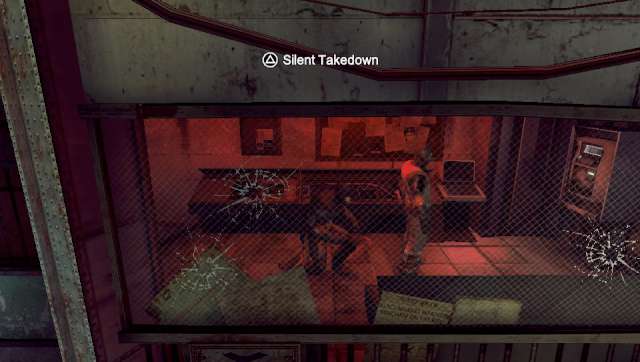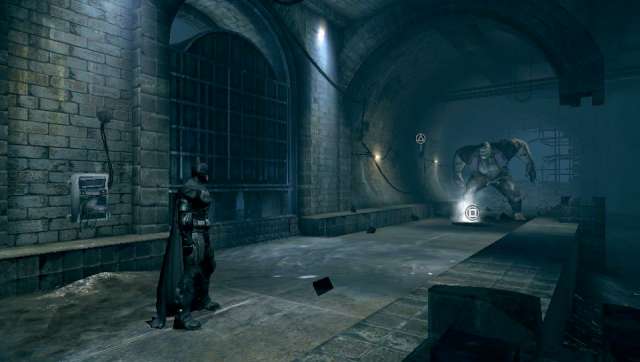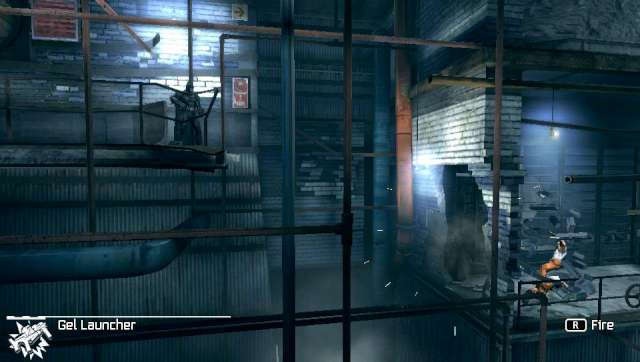Don’t abuse the genre.
Metroid and Castlevania have defined 2D action and adventure games for decades and it shows in how often the Metroidvania genre has been flogged by all manner of different developers and IP holders. There was Guacamelee from Drinkbox Studios on PlayStation Vita, Hell Yeah! Wrath of the Dead Rabbit from SEGA, Dust: An Elysian Tail made by (almost) only one man, and revisited classics like Cave Story 3D. Clearly, it’s not hard to take a concept you’ve been kicking around in your head and strap a 2D adventure where certain doors are locked until you’ve progressed far enough to unlock a bigger gun or a new tool. I like this game-ified conceit and will happily try my hand at experiments with the formula.
Unfortunately, it’s not hard to think very little about the genre as you develop these Metroidvania games. You just lay out a few different power-ups, design an interesting-looking map that may or may not flip upside-down to reveal an entirely new Castle… or cave… or space station… or whatever. It sounds so easy, but designing an excellent Metroidvania game is a lot harder than it looks. In the end, that’s Batman: Arkham Origins Blackgate’s biggest fault. It doesn’t think about you, it doesn’t try to evolve the now tried-and-true genre, and it doesn’t make any effort to introduce anything new about Batman’s Arkham universe. In fact, it kind of takes Metroidvania a step backwards.
The lack of thought makes itself evident from the outset. Batman and Catwoman chase each other around some Gotham rooftops and the game uses lots of neat tricks to make it seem like this portable Batman adventure could be just as entertaining as the console games from Rocksteady. Batman grapples up to ledges, the camera pans around as he navigates a large rooftop, and generally dudes try to attack Batman but get beat up. Blackgate tries to include every element from the console Arkham games, but doesn’t succeed in doing anything satisfying with any of them.
Detective vision flips on and off with a tap of the touchscreen and holding your finger over different areas of Batman’s world will uncover tips and secrets. In combat or predator challenges, Batman often used detective mode to single out enemies or track their movement, but on the Vita it’s not much more than a neat visual overlay. Where Batman could see the skeletons of his foes in previous Arkham games, in Blackgate you just see blobs of red inside blobs of gray that attack Batman. Combat feels about as cheap and hollow.
Batman can take on several bad guys at once, but don’t think you’ll have fine control over the caped crusader’s movements on a handheld. Often, Batman just defaults to attacking the nearest bad guy, even if you want to create some space for our hero mid-brawl. Stunning often feels like it refuses to work or Batman just plain misses, and you’re left staring dumbly at an incoming henchman’s fist. Countering can also prove difficult. Overall, none of the controls feel as tight or offer enough feedback as they have in console Arkham games, least of all Arkham City’s pin-drop responsiveness. It makes every move feel like it’s being telegraphed to Batman, whether he’s getting the signal inside Blackgate or not.

Combat leaves you unsatisfied and confused, but the game's map only adds to this. Once inside Blackgate prison, Batman is free to tackle any of the three wings taken over by archenemies Penguin, Joker, and Black Mask. While at first this freedom of movement and choice feels cool, it quickly results in more backtracking than any Metroidvania game should ever allow. You’ll inevitably get deep into one bad guy’s zone before finding a blocked path and Batman without the proper tool. Then it’s off to explore the other zones in search of that desired tool. You might get to the other end of Blackgate Prison to find another doorway barring Batman from progressing before traversing another sizable chunk of the map to discover the tool you needed for the first door… or was it the second?
Metroid and Castlevania have avoided this issue by designing maps with a lot more thought. The typical Castlevania game might not give you the double-jump you need to ascend to the castle’s second floor, but more importantly it doesn’t drop that ability in some random corner. It purposefully teases you through other areas of the castle before sending you back to climb the clock tower. Metroid does this too. Samus typically gets her morph ball ability just before a narrative push comes and has you use it to escape through a tunnel that drops Samus back at a main junction point in the map.

Blackgate's failings are further compounded by the fact that once Batman has run through a room and beaten up every thug who shoots him a dirty look, no new bad guys will appear, even if it's your fourth or fifth time through. Every room starts to feel empty. Oppressively empty. Like… "Helloooooo, anyone home? Just Gotham City’s Dark Knight here, voted three years in a row as most-hated by Criminals magazine" empty. This is a problem every other Arkham game has addressed by adding henchmen back into rooms that Batman has to backtrack through, but every other Arkham game has been designed with a lot more purpose than "This is a blockbuster franchise, I wonder how much money we can make off of it?"
Screw Blackgate Prison. It can’t contain any of its prisoners and it certainly can’t keep three-peat offenders like Joker, Penguin, and Black Mask under lock and key. Batman’s already had a long night, so why do we need to continue flogging him for uninspired sequels and spin-offs? Arkham Origins serves to bring Batman back for more in an acceptable, if unbelievable narrative, but Origins Blackgate does nothing for the character, nothing for the player, and nothing to further the Arkham series. It’s not a complete and totally broken mess, but it’s not the portable game Batman deserves and it’s not the Vita game we need right now.
Copy provided by publisher. Review based on Vita version. Also available for Nintendo 3DS.
-
Nananananananana... BATMAN!
-
A *Biff* to the Arkham-signature combat
-
A *Bam* to Batman's sense of direction
-
Nice visuals and sound
-
Horrible map design
-
Tries to keep player preoccupied with backtracking
-
Comic-book style cutscenes are pretty
-
Good voice acting
-
Feels like an excuse to sell more Arkham games







